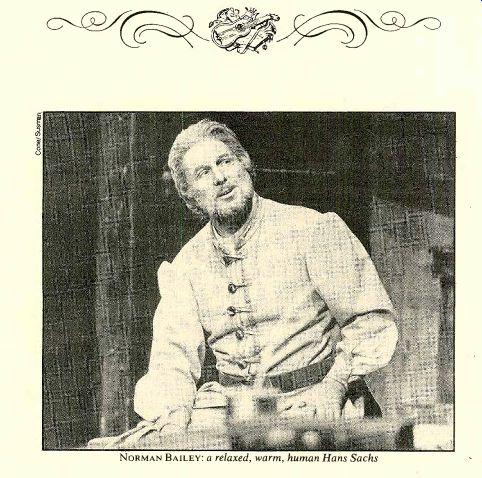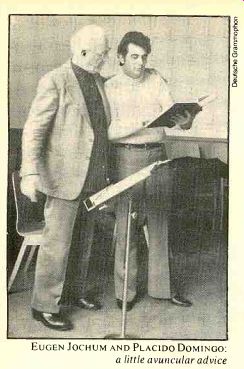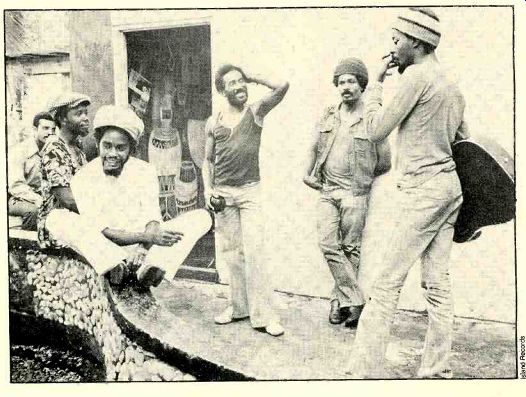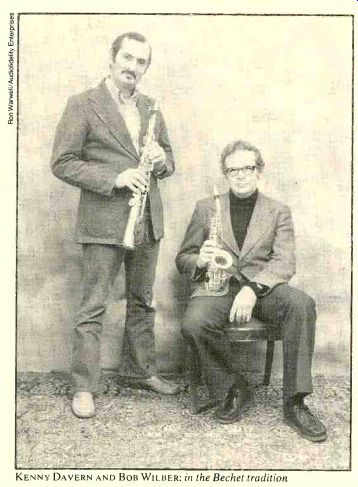
STEREO REVIEW'S SELECTION OF RECORDINGS OF SPECIAL MERIT---BEST OF THE MONTH
----------- NORMAN BAILEY: a relaxed, warm, human Hans Sachs
Jochum vs. Solti: Two Eminent Conductors Offer New Versions of Richard Wagner's Comic Masterpiece Die Meistersinger
WITH the long-awaited arrival of two new recordings of Richard Wagner's Die Meistersinger-one from Deutsche Grammophon under the baton of Eugen Jochum and another from London under Sir Georg Solti-we now have a choice of four modern versions in the current catalog. Both of the new sets offer a considerable number of attractions, as did the previous two (Angel/Karajan and Philips(Varviso), though neither shines with the blinding light of unmistakable superiority.
Solti and Jochum are both eminent Wagnerians whose general approaches to this complex opera do not always coincide, yet they remain, in their own ways, equally valid. Solti paces the mu sic more broadly, but his overall timing is only four minutes longer than Jochum's, a negligible difference for an opera of such length. (Karajan's time falls between the two, and Varviso's is considerably shorter.) Solti's personal imprint is more noticeable than Jochum's: his leadership exhibits a characteristic dynamism; a firm, at times robust, rhythmic foundation; massive sonorities; and grand, sweeping gestures. Jochum's more intimate approach may have been influenced by the strengths and limitations inherent in the casting of his Sachs, but more about that in a moment. His leaner orchestral sound reveals fewer of the details in Wagner's complex vocal and orchestral scoring than Solti's occasionally remarkable nuances do, but this is not always detrimental. In Solti's treatment of Act II, Scene 6, for example, Sachs' Cobbler Song ("Jerum, je rum") is almost overshadowed by the vocal strands surrounding it, while Jochum keeps it constantly, and properly, in focus. Just the same, on the basis of the orchestral performance alone, I lean toward the London set because Solti makes the festive moments decidedly more imposing and memorable, drawing magnificent playing from the Vienna Philharmonic (the Vienna horns and woodwinds are definitely superior to their Berlin counterparts), and be cause the London engineering gives us a wider range of dynamics and a splendid richness of low string sonorities.
Unquestionably, the most eagerly anticipated pleasure of the DG set is Dietrich Fischer-Dieskau's long-talked-about Hans Sachs, and I am happy to report that his deeply felt per formance has moments of incompara ble rightness. A good example is the ...

---- EUGEN JOCHUM AND PLACIDO DOMINGO: a little avuncular advice
... lovely soft intoning of the phrase "Dem Vogel der heut' sang" toward the end of the Fliedermonolog, and there are other tender caressings of phrases as well as subtle infusions of wisdom, irony, humor, or dejection that denote the sensitivity of the recitalist. But there are also distracting mannerisms: clipped, curt phrasing, over-emphases and exaggerated vocal gestures, and at times a simple inability to conceal the voice's limitations of range and weight. Remarkably enough, some of Fischer-Dieskau's best singing is done in the great "Verachtet mir die Meister nicht" exhortation of the op era's finale, which perhaps was wisely recorded in the early sessions-few are the baritones who are able to retain vocal freshness after four hours of arduous singing.
After the demanding complexities of the Fischer-Dieskau interpretation, it is almost a relief to turn to the Sachs of Norman Bailey: relaxed, warm, human, unaffected, full of the traditional virtues and devoid of all irritating idiosyncrasies. But it is also, alas, devoid of what is essential here: the mellow sound of a sonorous, firm, well-equalized bass-baritone. Neither Bailey nor Fischer-Dieskau supplies that sound; in the other stereo sets only Karl Ridderbusch (Philips) approximates it.
Deutsche Grammophon's adventurous casting assigns Placido Domingo to the role of Walther, and he responds to the challenge in a manner characteristic of his musicianship and versatility. He is certainly the most opulent-sounding among the recorded Walthers, even though his notes above the staff do not ring out freely. For all his excellent efforts, however, he does not appear to be at ease with the German text. The experienced Rene Kollo, with his lighter sound and more careful diction, may be preferred in that respect. Unfortunately, Kollo's top range is even more restricted than Domingo's, and he is further handicapped by Solti's excessively slow tempos for both the Vial Song and the Prize Song. Domingo's best singing is in the Prize Song; my prize, therefore, goes to him.
Passing quickly over the melancholy observation that neither Catarina Li gendza (DG) nor Hannelore Bode (London) is more than an adequate Eva, let us move on to the Beckmessers, where the picture is more encouraging. Both versions have lyric baritones in the role, fine singers who can spin out the required high A-natural without faking and who appear as genuine contestants rather than singing clowns-Beckmesser was, after all, a master singer! A certain amount of comic characterization is lost thereby (on records, at any rate), but I applaud the idea of having a singing Beckmesser as well as the two excellent artists who do the singing (I prefer Bernd Weikl on London by a slight margin).
Both Davids are excellent lyric ten ors, youthful in sound and resourceful in negotiating the considerable demands of the first act. Horst Laubenthal (DG) is virtuosic here, but Adolf Dallapozza ( London) is not far behind.
I find Julia Hamari ( London) the better of the Magdalenes; Christa Ludwig sounds a bit maternal in the role and is at times tonally unfocused. London's Pogner, Kurt Moll, a firm and sonorous bass, is superior to DG's Peter Lagger, who handles the conversational pas sages smoothly but has problems with the upper part of the role's tessitura.
Gerd Nienstedt ( London) brings rou tine strength to the delightful character Wagner created in Fritz Kothner, but Gerd Feldhoff (DG) steals the show with his enthusiastic and rich-toned singing. And if you are intrigued by the unlikely name "Werner Klumlikboldt" in the cast list, let me assure you that there is no such singer: the name masks Kurt Moll and Bernd Weikl, who divide the delicious music of the Night watchman between them. Both are good-and so is DG's gimmickless Victor von Halem in the same role.
In sum, faced with a choice of four essentially good versions in the stereo catalog, I would choose London/Solti for sonic excitement, general sound ness of conception, and consistently satisfying, though unspectacular, casting. The DG/Jochum set offers the un conventional pluses and minuses of Fischer-Dieskau's Hans Sachs and the best Walther, David, and Kothner of the lot to boot. The Angel has, in addition to certain remarkable Karajanesque qualities, the only acceptable Eva: Helen Donath. And finally, Phil ips/Varviso offers Bayreuth realism along with the best of the current Sachses.
-George Jellinek
WAGNER: Die Meistersinger von Nurnberg. Dietrich Fischer-Dieskau (baritone), Hans Sachs; Peter Lagger (bass), Veit Pogner; Roland Hermann (baritone), Sixtus Beck messer; Gerd Feldhoff (baritone), Fritz Kothner; Placido Domingo (tenor), Walther von Stolzing; Horst R. Laubenthal (tenor), David; Catarina Ligendza (soprano), Eva; Christa Ludwig (mezzo-soprano), Mag dalene; Victor von Halem (baritone), Night watchman; others. Chorus and Orchestra of the German Opera, Berlin, Eugen Jochum cond. DEUTSCHE GRAMMOPHON 2713 011 five discs $39.90.
WAGNER: Die Meistersinger von Nurnberg. Norman Bailey (baritone), Hans Sachs; Kurt Moll (bass), Veit Pogner; Bernd Weikl (baritone), Sixtus Beckmesser; Gerd Nien stedt (baritone), Fritz Kothner; Rene Kollo (tenor), Walther von Stolzing; Adolf Dal lapozza (tenor), David; Hannelore Bode (soprano), Eva; Julia Hamari (mezzo-soprano), Magdalene; Werner Klumlikboldt (bass baritone), Nightwatchman; others. Vienna State Opera Chorus and Vienna Philharmonic Orchestra, Sir Georg Solti cond. LONDON OSA 1512 five discs $34.90.
Berman-Giulini: An Odd but Successful Partnership for the Liszt Piano Concertos
IT will seem odd, perhaps, that Carlo Maria Giulini, who makes few concerto recordings and is just about the last conductor one might associate with Liszt, conducts the two Liszt concertos in his first Deutsche Grammophon release. The combination of pianist Lazar Berman and conductor Giulini must look odd on the face of it, too, for the solo works of Liszt in which Berman has been heard on records have for the most part shown him in the role of dazzling pyrotechnist and Romantic thunderer--not at all the sort of music-making one associates with Giulini.
As it turns out, however, the combination was an inspired one: soloist and conductor are together to an in credible degree, as if each had nurtured this conception of the Liszt concertos all his life and had only now found his ideal partner. I recall reading some musician's comment to the effect that, while he and his friends discussed the conducting after most concerts, after a Toscanini concert they found them selves discussing the music itself: that, in essence, is the effect this uniquely compelling pair of performances leaves with the listener. What remarkable, original, imaginative, majestic, exciting, deeply poetic works these concertos are, after all, and how much extraordinarily effective writing they contain for the orchestra (No. 2 in particular) as well as the piano! Obviously there is no conventional razzle-dazzle in these performances.
The approach is expansive and unhurried, projecting a feeling of immense power confidently held in reserve and an uncommon regard on everyone's part-every member of the orchestra is swept along in the magical Berman/ Giulini mutuality-for the astonishing beauty of these scores. Every brilliant effect is made, but made within the context of an integrated whole which it somehow strengthens instead of merely ornamenting. Liszt has never, never been so well served, and neither have those who listen to him. The recording itself is just about perfect technically.
-Richard Freed
LISZT: Piano Concerto No. 1, in E-Rat Major; Piano Concerto No. 2, in A Major. Lazar Berman (piano); Vienna Symphony Orchestra, Carlo Maria Giulini cond. DEUTSCHE GRAMMOPHON 2530 770 $7.98; 3300 770 $7.98.
Jackson Browne's "Pretender" Continues His Search in Those Inner Spaces
JACKSON BROWNE had been in the studio for three weeks to give birth to his fourth album, "The Pretender," when his wife Phyllis killed herself with sleeping pills. He is quoted in Rolling Stone as saying, well, yes, "The Pretender" is the story of Phyllis and himself, but adding, "I'm not sure how worthwhile my describing such a personal tale is . . . I think it might be more worthwhile if it weren't taken that way." In fact, the album refuses to be taken just that way, and not simply because it isn't specific about what she said and he said. It also is the story of yourself, of myself; it is about the self and the conflicts and contradictions it continually has to house. The word "story," though, with its implication of completeness, is a little off the mark.
Browne's albums aren't Separate Projects to be compared to one another but installments in his odyssey through his inner life, wherein perhaps reside truths about your inner life and mine as well. It is a trip he has undertaken ac cording to old and valid wisdom: know yourself and you will know humanity.
"The Pretender" is about frustration and optimism. If you analyze the songs and put them in one column or the other, you'll see that the undertone of optimism is not rational, that Browne's observations turn up too much evidence that the game is fixed; the album is about the human spirit refusing to do the reasonable (rational) thing, which would be to lie down and quit. The title song, quite an extraordinary piece of work, projects an "outer" life into what would seem a logical adjustment to this world: "I'm going to be a happy idiot . . . And struggle for the legal tender." But the protagonist there is ...

----- JACKSON BROWNE: an undertone of non-rational optimism
...the pretender; his soul is up to some thing else. The Fuse, which starts the record, is also supposed to go just after The Pretender, something like the way the lead-off man bats after the pitcher and gives you hope that things will pick up again. In this song the spirit assesses its own toughness.
Browne's words in this installment are just a shade more earthy than in previous ones. His structuring of verses and his curving of. melodies while these continue, characteristically, to refer back to turns he's taken be fore-are just a little more convention ally "songish," a little more basic. It is at once simpler and more complicated music than that of "Late for the Sky." "The Pretender" is just as strong musically, but in a different way. Jon Landau's straightforward production and good ideas-such as having a harp plucked in ways that suggest mariachi phrasings in Linda Paloma, a song that acknowledges Mexican musical influences but can't afford to have that overwhelm what the listener perceives in it-get at the essence of Browne's thematics. I think Here Come Those Tears Again is structurally and melodically too complicated for the sense of its own words, as if Browne felt he had to write it before his subconscious had coughed up a full set of instructions.
Most of the others sound as if they came to him after he had done all the difficult and painful work involved in preparing the way. Well, the truth is al ready there, all of it, some of it in the outside world and a lot of it in Jackson Browne and in you and me and maybe even in the other fellow who looks to us like a happy idiot. Say a prayer for all of us pretenders.
-Noel Coppage
JACKSON BROWNE: The Pretender. Jack son Browne (vocals, guitar); Jeff Porcaro (drums); Leland Sklar (bass); Craig Doerge (piano); other musicians. The Fuse; Your Bright Baby Blues; Linda Paloma; Here Come Those Tears Again; The Only Child; Daddy's Tune; Sleep's Dark and Silent Gate; The Pretender. ASYLUM 7E-1079 $6.98, ET8-1079 $7.97, TC5-1079 $7.97.
-------------

MAX ROMEO (on wall) AND THE UPSETTERS: broad swipes at
social issues
"War Ina Babylon": Max Romeo and the Upsetters Present Music to Get Upset
By EVERY so often (unfortunately not of ten enough) an album comes along that seems to redefine a whole genre..
Reggae, which has taken such a beating lately at the hands of no-talent band wagon hoppers that it's sunk almost to the level of the cha-cha-cha in musical interest, has needed such an album.
Now, suddenly and unassumingly, there appears Island's new "War Ina Babylon" by Max Romeo, and this is reggae-tender, urgent, crude, cruel, sarcastic, and powerful, truly a music to get upset by.
It is no accident, of course, that Romeo calls his group the Upsetters, for he has been in the "upset" business for some time. Max Romeo (real name Maxie Smith) was a notorious figure in English pop as far back as 1968, when he had a hit, banned by the BBC, with a song called Wet Dream. It was pushed onto the charts as a result of its popularity with the "skinheads," a strange tribe of British youths who cut their hair extra-short, wore heavy work boots, and placed themselves (often quite literally) stubbornly athwart the fashionable progress of the long-haired Beatles cult. He followed that with such risible rarities as Pussy Watch Man, Wine Her Goosie, and Mini Skirt Vision. In Britain his records were considered "rude"-and I would guess they mean a little bit more by that than we do. Around 1971, however, Max cut the kidding around and got serious.
During this period he wrote, among other religio-socio efforts, Let the Power Fall. It became the rallying anthem of the People's National Party in the Jamaican general elections of 1972.
And for the last few years he's been working in a quasi-comic vein that gives him room to take broad swipes at just about all the social issues confronting the West Indian black man.
This album, meticulously and grittily produced by Lee Perry (he also collaborated on several of the songs), is a fascinating glimpse into Romeo's work. His voice has a natural, taunting sweetness that is both seductive and threatening, and he uses it expertly like a machete. In the title song he seems almost to be sending up the lyr ics (about a tribal war) with his cozy, teasing delivery. But as chorus builds on chorus the listener suddenly realizes he has been infiltrated in an oddly un settling way. Uptown Babies, ad dressed to those who happily know nothing of the ghetto, and Stealin', about corrupt churchmen, are sung in a curious monotone that glitters some how with resentment and anger. And Norman is a flashy dude scornfully and good-humoredly dissected. In every thing Romeo does there seem to be double levels of meaning, and even the sugar coatings are tainted with prussic acid. You may never grow to like Max Romeo, but if you listen you will find it hard to deny he's an authentic voice speaking in a form he intends to enrich, not merely capitalize on.-Peter Reilly
MAX ROMEO & THE UPSETTERS: War Ina Babylon. Max Romeo (vocals); orchestra. One Step Forward; Uptown Babies; Chase the Devil; War Ina Babylon; Nor man; Stealin'; Tan and See; Smokey Room; Smile Out of Style. ISLAND ILPS 9392 $6.98, Y81-9392 $7.98, ZC I-9392 $7.98.
----------
Soprano Summit: A Jazz Quintet Featuring Soprano Sax Duets
UNLIKE other jazz instruments, the soprano saxophone has had but one true master, the late Sidney Bechet. Sure, Johnny Hodges occasional ly doubled on the soprano, and he did so extremely well, but it was Bechet who fully explored its potential and laid down the ground rules. Strangely neglected by other reed men in the early years of jazz, and totally bypassed by the beboppers, the soprano has found a new following-owing to John Coltrane's adoption of it in 1960-among today's avant-gardists, but rarely does one hear the instrument played in the tradition established by Bechet.
That rich vibrato sound, slithering effortlessly from bottom to top register--as it did so delightfully in the hands of Bechet--is fortunately not extinct, however, thanks to Bob Wilber and Kenny Davern. Wilber learned the instrument firsthand as a student of Bechet during the latter part of the For ties. He has, in fact, recorded with the great New Orleans master, but, having studied with Lennie Tristano as well, his horizon is wide, and he is equally at home within a more modern musical context. Davern, the younger of the two, is not as well rooted in the Bechet tradition as Wilber, but he is capable of marvelous performances and, as evidenced by Soprano Summit's first al bum (on World Jazz WJLP-S-5), he is the perfect partner for this sort of thing. Completing the quintet are Marty Grosz, a wonderful, steeped-in-tradition guitarist whose full-bodied acoustical sound has appeared on revival jazz records for over twenty-five years, though all too infrequently; bassist George Duvivier, one of the most respected rhythm men around;-and drummer Fred Stoll, about whom I know nothing except that he fits nicely into the scheme of things here.
As was the case on this group's first album, the program is a delightful mix ture of tunes associated with Bechet, original material, and an early Ellington item. Except for a rather straight-and, thankfully, brief-version of Danny Boy, the album is a joy from beginning to end. It takes its title from Chalumeau Blue, a Wilber original featuring two clarinets played, appropriately enough, in the lower register (the chalumeau was a forerunner of the clarinet, and the name is used to denote the lowest register of modern clarinets); the deep, reedy sound is one of the most beautiful around. Also beautiful, in its simplicity, is Debut, a Wilber/ Grosz duet featuring the former's first venture on the alto saxophone. But it is on soprano that Wilber really shines, and for pure foot-stomping value the zesty, scorching Nagasaki is hard to beat; it is the opening track of an album that is revivalist, to be sure, but far from imitative.
-Chris Albertson

-------- KENNY DAVERN AND BOB WILBER: in the Bechet tradition
SOPRANO SUMMIT: Chalumeau Blue. Bob Wilber (clarinet, soprano and alto saxophones); Kenny Davern (clarinet, soprano saxophone); Marty Grosz (guitar, banjo); George Duvivier (bass); Fred Stoll (drums). Nagasaki; Chalumeau Blue; Black and Tan Fantasy; Grenadilla Stomp; Danny Boy; Everybody Loves My Baby; Linger Awhile; Slightly Under the Weather; Wake Up Chillen'; Of' Miss; Debut; Some of These Days. CHIAROSCURO CR 148 $6.98.
------
Also see:
CLASSICAL DISCS and TAPES--Pianist David Bean: Awfully Impressive JAMES GOODFRIEND Frederick Delius' Fennimore and Gerda PAUL KRESH Wagner's "Ring" Complete on Cassettes